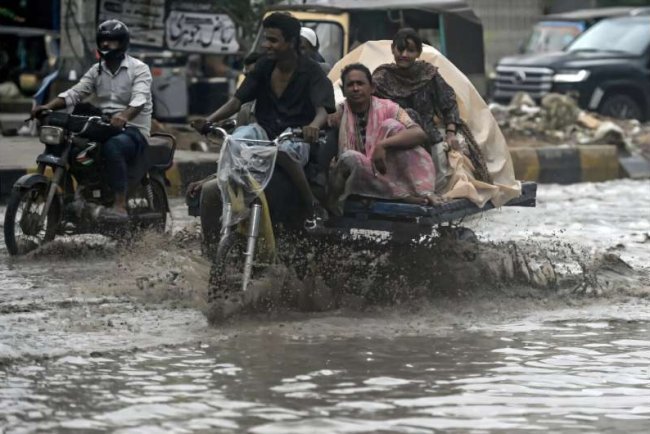Zenobē Secures €325 Million For Electric Fleet Expansion
Zenobē secures €325m financing to expand electric buses and trucks across Europe, boosting clean transport growth

Zenobē, a battery storage and e-mobility specialist based in the UK, has raised €325 million (US $355 million) in senior debt financing to accelerate the deployment of its electric fleet across Europe. The financing package included a senior debt commitment from Crédit Agricole CIB, as well as contributions from many large global investment entities, like KKR and Infracapital. This emphasis from the supportive investment community for low-carbon mobility solutions is growing.
The company will deploy up to 1,000 electric buses and trucks as well as charging stations to support fleet operations. This is a critical moment in Europe as the continent is committed to decarbonising transport. Diesel and petrol vehicles remain significant contributors to greenhouse gas emissions and urban air pollution.
Zenobē was founded in 2017 and has grown from a UK start-up into an international player in fleet electrification. It now operates in the UK, Australia and New Zealand and is working to establish operations throughout Europe and North America. Zenobē is already responsible for nearly 28% of the UK's electric bus market, and have secured contracts across the Benelux region, Finland and Spain.
Matthew Norman, who leads Infrastructure & Advisory initiatives across the globe at Crédit Agricole CIB, stated: “I want to congratulate all the teams who participated in finalizing this groundbreaking financial arrangement for electric vehicle fleets with Zenobē. This agreement reinforces the Bank’s standing in the energy transition domain and enhances our reputation in the fast-developing electric mobility industry. We anticipate using this achievement as a foundation for future chances worldwide. ”
Tom Wellingham, who serves as the Director responsible for Infrastructure in Europe, the Middle East and Africa, further commented: “Zenobē is a prominent organization in the low-emission transportation sector and one that we have observed with considerable respect as they have established their leading role in the market. We are thrilled to assist Zenobē in implementing their distinctive services across continental Europe and are eager to develop this partnership for additional prospects around the world. ”
The financial arrangement is a continuation of Crédit Agricole CIB’s previous participation in Zenobē’s large-scale battery storage project in the UK, where the bank functioned as the Primary Organiser. Henry Manson, who is the Director overseeing Infrastructure Coverage at Crédit Agricole CIB, highlighted that the newly established €325 million debt resource will enable the growth of Zenobē’s provision of electric bus fleets as a service in Europe, showcasing the bank’s capability to collaborate with infrastructure fund customers to promote initiatives for energy transition.
Zenobē’s growth is in accordance with larger patterns in the European public transport industry, where urban areas are progressively implementing electrified vehicle fleets to achieve sustainability objectives and enhance the atmosphere in cities. By supplying electric buses and trucks, along with the necessary charging stations, Zenobē seeks to present urban areas with more ecologically sound and dependable options for transport.
The corporation's planned expansion also highlights how crucial infrastructure and financial institutions are to enabling the move towards transportation with minimal environmental impact. Financial institutions such as Crédit Agricole CIB enable the use of technology that lowers pollution and promotes environmentally friendly urban transportation options by arranging and taking part in significant financing agreements.
Zenobē's most recent financial undertaking ranks among the biggest private investments made to date in Europe for the installation of electric vehicles. According to experts, these kinds of agreements are essential for accelerating the use of electric mobility solutions and assisting businesses in quickly growing their operations in response to the rising need for sustainable transportation.
Zenobē's initiatives are predicted to create prospects in related industries such as vehicle maintenance, battery storage, and charging network administration, in addition to fleet growth. The business is able to provide complete fleet services to municipal transportation agencies and commercial operators across numerous European markets because to this all-encompassing strategy.
Businesses like Zenobē are positioned to play a key role in the continent's energy transition as Europe continues to impose tougher emissions regulations and governments push for cleaner public transportation. The €325 million investment demonstrates both investors' faith in Zenobē's business strategy and the rising significance of private capital in supporting environmentally friendly mobility infrastructure.
Zenobē intends to quickly expand its electric bus and truck operations and expand charging infrastructure to ensure smooth fleet deployment using this money. The company's dedication to cutting-edge technology and environmentally friendly transportation solutions solidifies its standing as a key player in Europe's transition to cleaner transportation.
Macquarie Asset Management (MAM) has successfully gathered $405 million for Vertelo, an Indian business that helps vehicle groups switch to electric power, which is its biggest investment in the Asian electric vehicle (EV) business so far. This money includes $205 million from different big investors, along with $200 million in discounted funds from the Green Climate Fund (GCF), which is the main supporter. The Macquarie Green Energy Transition Solutions Fund, Allianz Global Investors, and Australian Ethical also participated as supporters in this round.
Vertelo, started in April 2024 by the Green Investment group at MAM, provides complete ways to switch vehicle groups to electric, including lease and finance choices, EV charging places, fleet management, saving energy, and recycling services for electric vehicles when they are no longer used. In the last year, Vertelo has teamed up with major original equipment manufacturers like Tata Motors, MG Motors, JBM, Switch Mobility, Eicher Volvo, and Eka Mobility, building a strong working structure in India’s quickly growing EV area.
Abhishek Poddar, a Managing Director at MAM, emphasized how important this fundraising was, saying that the $405 million investment is the company's biggest financial commitment in Asia’s electric vehicle market. He said that this step shows Macquarie’s wider worldwide goal of supporting successful businesses and areas that are helping the shift to cleaner energy. Poddar pointed out that the MAM Green Investment and Vertelo teams have effectively created a solid working system in India in just over a year, highlighting the country’s potential as a key market for EV growth.
Henry Gonzalez, the Chief Investment Officer at the Green Climate Fund, stated that this project is ready to speed up India’s growth of needed EV systems and boost a strong setting for EV acceptance. He mentioned how important mixed financial plans are in making climate-focused funding easier to get and supporting the move to progress that makes less pollution and is stronger against climate change. Gonzalez highlighted that these kinds of investments can grow solutions in new markets by joining low-cost funding with private investment to make the good effects bigger and reduce money risks.
Private capital partners also stressed the possible good environmental effects of backing Vertelo&039;s growth. Peter Ellersiek and Lucie Bernatkova from Allianz Global Investors said that investing in India’s EV systems offers big and measurable steps in changing to a greener environment, while Adam Roberts, who leads Private Markets at Australian Ethical, emphasized that investments such as Vertelo match the firm’s ethical ideas focused on people, the environment, and lasting progress.
The electric car market in India is predicted to increase by 27% each year, with sales likely reaching $59 billion by 2035. Helpful government rules and more companies wanting to reduce pollution are boosting demand, giving chances for groups such as Vertelo to be key in growing the country’s electric vehicle system. Vertelo’s full plan, from managing vehicles to making the most of energy use, lets it help with both running and paying for electric vehicles in India.
Macquarie has been a big part of India since 1999, spending over $4.2 billion in different areas. The company runs large teams in Mumbai and Gurugram, showing that India is very important as a place to invest and a place to work. Through Vertelo, Macquarie wants to use its local knowledge to make electric cars more common, helping India change to a transport system that is cleaner and has less pollution.
The teamwork between Macquarie and the Green Climate Fund shows how blended finance is becoming more popular, mixing cheap and private money to allow big climate answers in new markets. By making it easier to get important funding, these plans not only help build the needed infrastructure but also make investors trust the area more. The joint work of global investors and companies in India is likely to make the country’s electric vehicle system stronger, giving a model for other new markets wanting to grow green transport choices.
As Vertelo grows its work, it wants to handle all parts of electric vehicles, from buying them to making the most of energy and then recycling them. The group’s focus on a complete plan makes sure that using electric cars is not only faster but also lasts and saves money. With more interest from big investors and cheap money sources, India’s electric car market is ready for a big change, with Vertelo leading the way in making a cleaner and lasting transport future.
In general, the $405 million raise highlights how important it is to invest in electric car infrastructure in India and the role of blended finance in pushing climate-focused answers. Macquarie’s part shows trust in the market’s chance, while the Green Climate Fund’s involvement shows it wants to help low-pollution growth in new economies. Together, the investors want to make a big, lasting model for electric vehicles that can be copied across other markets facing similar energy change problems.
The money will help Vertelo speed up the launch of electric cars and charging stations across India, help with how well they work, and make partnerships stronger with car makers and vehicle operators. This team plan wants to make sure that India’s move to electric cars is good for the economy and the environment, adding to bigger national and global climate aims.
What's Your Reaction?

















